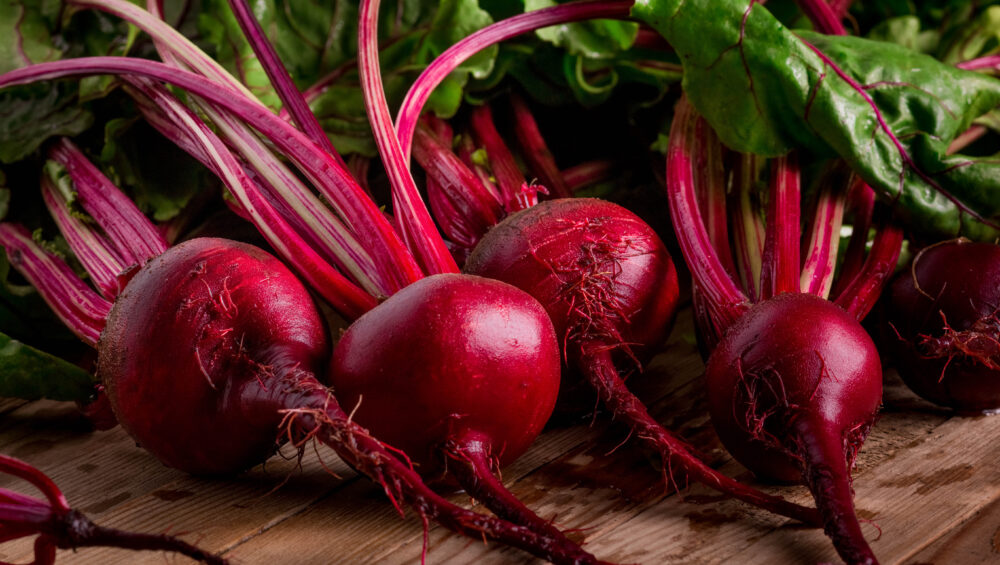Beets are a root vegetable that is often overlooked in the United States. But they are quite popular in Europe and other parts of the world. Beets are packed with nutritional value.
They also offer a wide range of health benefits. In this article, we will discuss some of the most important health benefits of beets as well as how to eat them and include them in your diet. Keep reading and learn more.
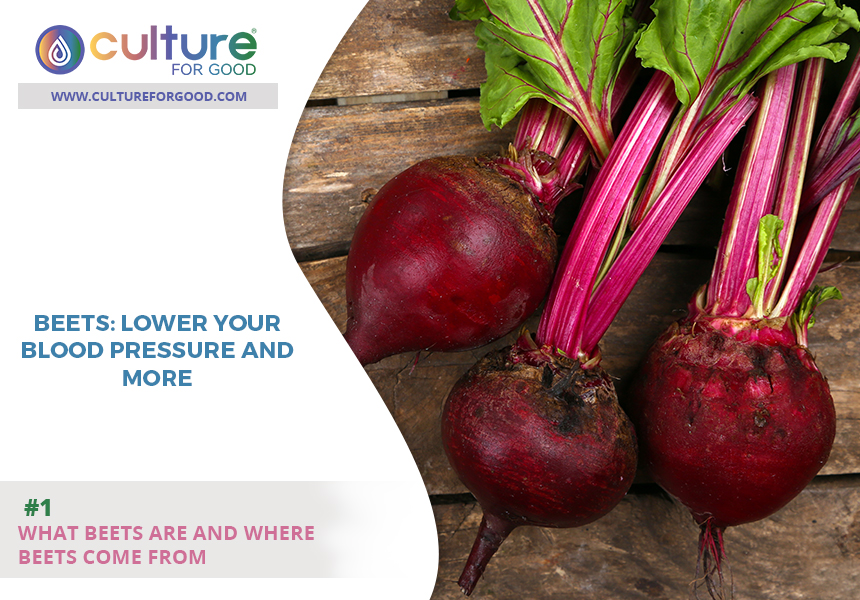
1What Beets Are And Where Beets Come From
Beets are a root vegetable that is most commonly eaten boiled or roasted but can also be juiced, used in salads, or added to smoothies. They have impressive nutritional value with nutrients that include the following below.
Fiber: Beets are a good source of fiber, with around three grams in a one-cup serving. This is vital for digestive health and can also help lower cholesterol levels.
Potassium: Beets are rich in potassium, which is an electrolyte that helps regulate blood pressure and heart function.
Folate: Beets are an excellent source of folate, a water-soluble vitamin that is essential for cell growth and DNA synthesis. Folate is especially vital for pregnant women, as it can help prevent birth defects.
Betaine: Betaine is a nutrient found in beets that have been shown to reduce inflammation and improve heart health.
When shopping for beets, look for beets that are firm with smooth skin. Avoid beets that are soft or have any bruises. Beets can be stored in the fridge for up to two weeks.

2The Health Benefits Of Beets
Beets are a good source of many nutrients that can offer some health benefits below.
Lowering blood pressure: Beets are rich in nitrates, which are converted into nitric oxide in the body. Nitric oxide helps relax and widen blood vessels, which can lower blood pressure.
Improving heart health: The betaine found in beets can help reduce inflammation and improve heart health.
Supporting cognitive function: Beets are an excellent source of folate, which is vital for cognitive function. Folate has been linked to a reduced risk of cognitive decline and dementia.
Detoxification: Beets contain betalains, which are antioxidants that help protect cells from damage. Betalains have also been shown to promote detoxification in the body.
Promotes a healthy gut: The fiber in beets can help promote a healthy gut by promoting regularity and preventing constipation.
Increases Sex Drive: Beets are a good source of nitrates, which are converted into nitric oxide in the body. Nitric oxide is important for sexual function and has been shown to improve erectile dysfunction.
Helps With Weight loss: Beets are low in calories and high in fiber, both of which can help with weight loss.
The benefits of beets are many and varied. This superfood can help prevent heart disease, stroke, and certain cancers. Beets are also full of essential vitamins and minerals, making them a great addition to any diet.
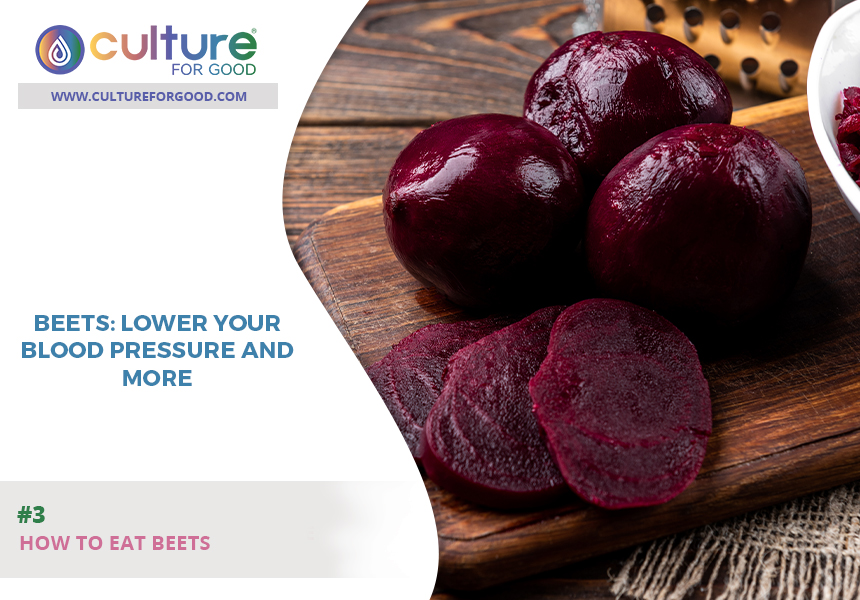
3How To Eat Beets
Beets can be eaten in a variety of ways.
Boiled: Boiling beets is the simplest way to prepare them. To boil beets, simply place them in a pot of boiling water and cook until they are tender.
Roasted: Roasting beets bring out their natural sweetness. To roast beets, preheat the oven to 400 degrees Fahrenheit. Wrap the beets in foil and place them on a baking sheet. Bake for 30-40 minutes or until tender.
Juiced: Beets can also be juiced and added to smoothies or vegetable juices. When juicing beets, it’s best to use a juicer, as this will extract the most juice.
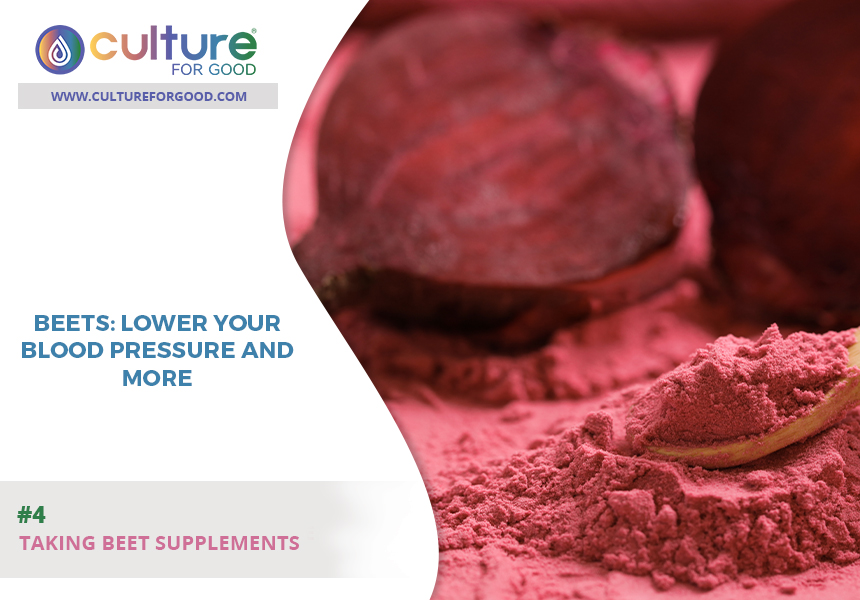
4Taking Beet Supplements
If you don’t like the taste of beets or can’t seem to incorporate them into your diet, beet supplements are a good option. Beet supplements are usually in the form of capsules or powders. They provide many of the same health benefits as eating beets.
Here are some side effects associated with taking beet supplements.
Stomach upset: Some people may experience stomach upset, gas, or bloating when taking beet supplements. If this occurs, take the supplement with food or reduce the dosage.
Kidney stones: People with kidney problems or a history of kidney stones should avoid taking beet supplements, as they can increase the risk of stones.
Low blood pressure: Beet supplements can lower blood pressure. If you have low blood pressure or take blood pressure medications, speak to your doctor before taking beet supplements.
Take beet supplements if you don’t like eating them. This is an excellent way to get the health benefits of beets. However, as with any supplement, it’s important to speak to your doctor before taking them.
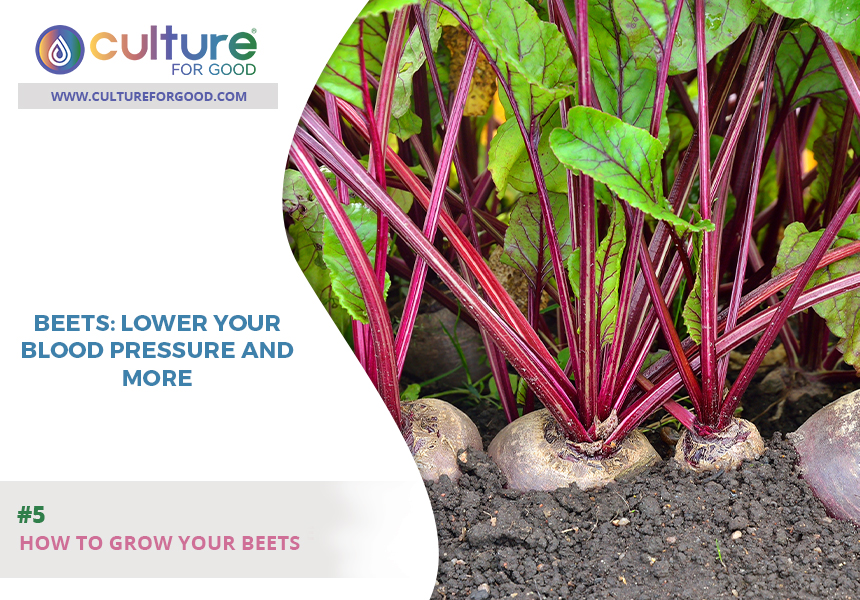
5How to Grow Your Beets
Beets are a relatively easy vegetable to grow and can be planted either in the garden or in containers. They prefer cool weather and can be harvested up to three months after planting. Here’s how to grow your beets.
Start with seeds or seedlings; beets can be started from either seeds or seedlings. If you’re starting with seeds, sow them indoors about four weeks before the last frost date; plant the seeds 1/2-inch deep in the soil and keep them moist. When the seedlings are four to six inches tall, transplant them to the garden or containers. Choose a sunny spot; beets need full sun to grow well. Choose a spot in the garden that gets at least six hours of sunlight per day.
Beets prefer loose, fertile soil. If your soil is heavy or compacted, amend it with compost or manure before planting; make sure to water regularly, as beets need to be kept moist throughout the growing season. Water them deeply and regularly, especially during dry periods. Beets are also heavy feeders and will benefit from being fertilized every few weeks. Use a water-soluble fertilizer and follow the directions on the package.
Beets are ready to harvest when they’re about two to three inches in diameter. To harvest, gently loosen the soil around the beet with a shovel or spade and carefully lift it out of the ground. Cut the leaves off about one to two inches from the beets and store the beets in a cool, dry place. Beets are a delicious and nutritious vegetable that can be easily grown at home. With a little care, you can enjoy fresh beets all season long.
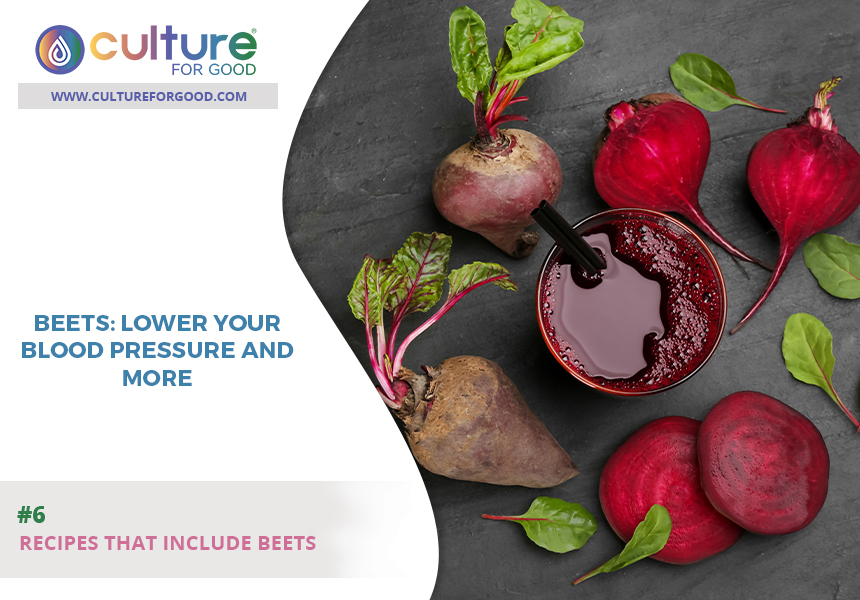
6Recipes That Include Beets
Beets can be added to an endless number of recipes. All it takes is a little creativity, and you can enjoy the benefits of beets and eat delicious meals, too. Here are two recipes for you to try.
=>Beet Ravioli: These ravioli are made with beet-infused dough and filled with a mixture of ricotta cheese and roasted beets.
Start with:
1 pound beets, peeled and diced
1 cup ricotta cheese
1 egg
1 tablespoon chopped fresh parsley
1/2 teaspoon salt
1/4 teaspoon black pepper
For the dough:
2 cups all-purpose flour
3 tablespoons beet juice
1 teaspoon olive oil
1/4 teaspoon salt
In a food processor, combine beets, ricotta cheese, egg, parsley, salt, and black pepper. Pulse until the mixture is smooth.
To make the dough, combine flour, beet juice, olive oil, and salt in a medium bowl. Stir until the dough comes together. On a lightly floured surface, roll out the dough to 1/8-inch thickness.
Cut the dough into three-inch circles. Place one tablespoon of the beet mixture in the center of each circle. Fold the dough over the filling and press the edges together to seal.
Bring a large pot of water to a boil. Add the ravioli and cook for three to five minutes or until they float to the surface. Serve with your favorite sauce.
=>Beet Soup: This soup is made with roasted beets and features a unique blend of spices.
Start with:
4 large beets, peeled and diced
1 tablespoon olive oil
1 onion, chopped
3 cloves garlic, minced
1 teaspoon ground cumin
1 teaspoon smoked paprika
1/2 teaspoon ground coriander
1/4 teaspoon cayenne pepper
4 cups vegetable broth
1 cup plain yogurt
Salt and black pepper to taste
Preheat the oven to 400 degrees Fahrenheit. Toss the beets with olive oil and place them on a baking sheet. Roast for 30-40 minutes or until tender.
In a large pot, sauté onion and garlic in olive oil over medium heat until the onions are translucent. Add the spices and cook for one minute or until fragrant. Add the roasted beets and vegetable broth. Bring to a boil and simmer for ten minutes.
Remove the soup from the heat and add yogurt. Puree the soup with an immersion blender or in a regular blender. Season with salt and black pepper to taste. Serve hot.
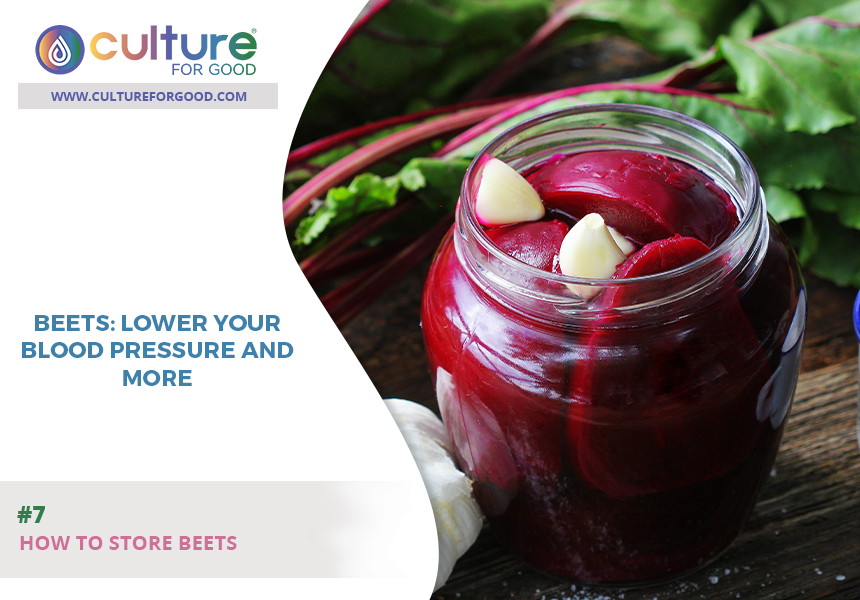
7How To Store Beets
Beets can be stored in a variety of ways. The best way to store them depends on how you plan to use them.
For short-term storage: If you plan to use the beets within a week, they can be stored in the refrigerator. Wrap them loosely in plastic wrap or place them in a resealable bag.
For long-term storage: Beets can be stored in the freezer for up to eight months. To freeze them, wash and trim the beets. Cut them into small pieces or slice them thinly. Place the beets on a baking sheet and freeze them for two to three hours or until solid. Transfer the frozen beets to a resealable bag and label it with the date.
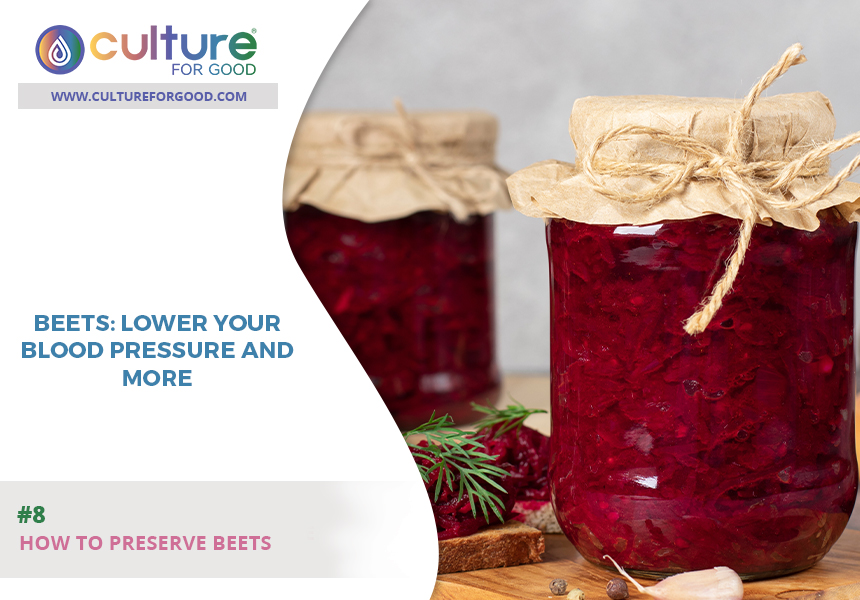
8How To Preserve Beets
Beets can be preserved in several ways. The most common methods are canning and pickling.
Canning: Canning is a great way to preserve beets for long-term storage. To can beets, you will need a pressure canner; wash and trim the beets. Cut them into small pieces or slice them thinly; place the beets in a canning jar and add enough water to cover them. Add one teaspoon of salt per quart (four cups) of water; process the jars in a pressure canner according to the manufacturer’s instructions.
Pickling: Pickling beets are a great way to add flavor to them; it also allows you to store them for longer periods. To pickle beets, you will need a pickling jar; wash and trim the beets. Cut them into small pieces or slice them thinly; place the beets in a pickling jar and add enough water to cover them. Add one teaspoon of salt per quart (four cups) of water; add your favorite pickling spices to the jar. Process the jars in a boiling water bath for ten minutes.

Beets are root vegetable that is typically red or white. They have many health benefits, which include preventing heart disease and other conditions. Beets can be eaten raw, cooked, or as juice.
There are also beet supplements available. You can grow your beets with some simple instructions. Lastly, there are many recipes that you can make with beets, including salads, smoothies, and soups. Add more beets to your diet and begin enjoying the benefits of this hearty vegetable.
